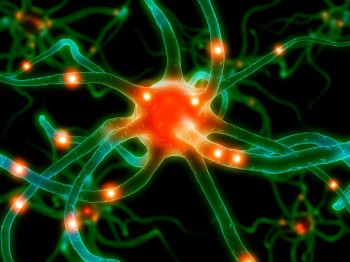Alzheimers Diet Prevention Guidelines
How the American Causes Alzheimer's Disease.

This Alzheimers Diet Prevention page is for informational purposes only. The information listed on this page comes from medical texts, doctors' reports and journals, and is not meant to replace your physician's advice. If you have any health issues or concerns, please contact your health care provider.
The Alzheimers Diet Connection is Very Clear
In recent medical literature, there's growing evidence of the Alzheimers diet connection. On this page, we're going to study the connection between Alzheimer's Disease and the standard American diet:
There are differing causes relating to
how Alzheimer's Disease develops. On this page, we will focus primarily
on the role of diet in relation to this baffling brain disorder.
Mounting evidence shows that
individuals who follow a diet rich in natural antioxidants and essential
fatty acids may actually lower their risk for developing Alzheimer's
Disease.
Following a low fat diet is based on ancient 1950s science. Reducing fat and cholesterol can actually be dangerous for the brain since it's composed of 70% fat and cholesterol. Dr. Perlmutter, author of the groundbreaking book Grain Brain, teaches us that a low cholesterol, low fat diet is associated with brain disorders like Alzheimer's Disease.
Cholesterol is necessary for every cell in the human body, in particular the brain. Cholesterol lowering medications can actually induce Alzheimer's disease by lowering critical amounts of cholesterol that is necessary for brain function.
The new science shows that fat intake is critical for the brain. Click here to read an important article about the relationship between low fat diets and Alzheimer's Disease.
Watch Alzheimer's Information Video
Who Was Alois Alzheimer? A Brief History
Before we get started with the Alzheimers diet theme, let's talk a little bit about the history of Alzheimer's Disease.
The name "Alzheimer's" comes from
Dr. Alois Alzheimer, a 37-year-old neuropathologist and researcher who
first discovered this illness in 1906. Dr. Alzheimer was bewildered by the frightening dementia exhibited by his
57-year-old female patient. She
exhibited signs of extreme confusion and memory loss.
After her death, there were studies conducted on her brain to increase awareness about this disorder. Dr. Alzheimer discovered amyloid plaques and neurofibrillary tangles in her brain.
Dr. Alzheimer's important research went virtually ignored until the 1960s when more aggressive treatments and observations were made by Dr. Katzman, a neurologist at Albert Einstein University.
Amyloid Plaques and Neurofibrillary Tangles Defined
Amyloid Plaques Definition: Amyloid plaques are clumps of abnormal sticky, dark proteins that develop within the cortex and the hippocampus of the brain.
Neurofibrillary Tangles Definition: Neurofibrillary tangles are abnormal deposits of a protein called tau that form along nerve pathways inside the human brain. As the tangles increase, the Alzheimer's patient is less able to function normally.
Alzheimer's is Becoming a Worldwide Epidemic
50 million people around the world are affected by Alzheimer's Disease. It is estimated that by the year 2050, this number will be closer to 115 million.
This page lists proven dietary steps and strategies you can take to minimize or even eliminate your risk for developing AD. Even a person with Alzheimer's Disease can slow the progression of this disease and promote brain health.
Our Brains Require Complex Nutrition
Diet plays an incredibly important role in brain health and vitality. Our diets control everything in our brains, from the wiring, all the way down to how we sleep, behave and feel.
The brain is an amazingly complicated organ consisting of 100 billion nerve cells which are linked together through 100 trillion separate pathways.

Our brains house our memories, pains, fears, moods and perceptions of our surroundings. Our brains compose only 2 percent of our body's weight, but require an astonishing 20 percent of our energy production.
High Blood Sugar is the Single Biggest Risk Factor for Disease, Aging and Mental Decline
Diabetes damages the brain by making blood vessels hard and stiff. This damage increases the likelihood of stroke, heart disease, hypertension, and increases the risk for dementia. Diabetes causes a failure to keep blood sugar at safe levels, which impairs memory and other mental functions in people with Alzheimer's Disease.
Diabetes is a well-known precursor to Alzheimer's. The most important thing you can do for Alzheimers is to control your blood sugar.
Some experts have proven through clinical observations that Alzheimer's Disease may actually be a form of diabetes of the brain. They are now calling it Type III Diabetes.
In Alzheimer's patients, the brain is unable to process insulin normally. With the massive epidemic of diabetes, there can only be a correlating increase in dementia.
Researchers have shown that high blood sugar greatly increases the risk for dementia. Your Alzheimers diet prevention program should not contain refined sugar.
The Healthy Diet Paradise contains a large database of recipes that do not contain sugar and are safe for your brain. Click here for more information on a sugar-free diet.
Wheat & The Human Brain
Dr. Perlmutter's groundbreaking book Grain Brain discusses in detail how wheat is related to brain disease. Grain Brain is a fascinating read, and is currently #1 on the New York Times Best Seller List.
The most important Alzheimers diet connection is related to wheat. Wheat has been shown to dramatically increase the risk for brain disease. Click here to learn about wheat and disease.
Watch Dr. Perlmutter's Video Below
Natural Supplements for the Brain
Alpha Lipoic Acid: Alpha Lipoic Acid has been receiving a lot of press lately. This tiny molecule can penetrate the brain and prevent free radical damage. Alpha Lipoic Acid increases the effectiveness of other powerful antioxidants already present in our systems, such as Glutathione, and even Vitamins C and E.
In rat studies, ALAs have been shown to protect neurons from free-radical damage. In human studies, ALAs were shown to delay the progression of Alzheimer's Disease. Further investigation for the effectiveness of Alpha Lipoic Acid is currently underway.
B Vitamins: Studies indicate that a lack of B Vitamins cause a sharp decline in cognitive function. Lack of B vitamins can lead to depression. B Vitamins have to be replenished daily because they are released through the urine. Older people need more B Vitamins because they often don't consume the necessary variety of foods.
Vitamin C & E: During a 10-year study conducted by the Rotterdam Epidemiological Study, high amounts of Vitamins C and E reduced participants' risk for Alzheimer's Disease by 20 percent. 1,000 units of Vitamin E has been proven to delay the progression of Alzheimer's Disease by one year.
Ginko Biloba: Ginko Biloba can slow the progression of Alzheimer's Disease by improving circulation. Ginko Biloba slows the production of free radicals, which can lead to cell damage. Ginko improves blood flow and keeps blood vessels supple.
Natural Alzheimers Diet Prevention
Oxidation can lead to Alzheimer's Disease due to a lack of antioxidants in the diet. Severe oxidative stress, which is defined as the lack of antioxidants, can lead to many diseases, including Alzheimer's Disease. Use these powerful antioxidant foods listed below for your Alzheimers diet.

Foods Highest in Antioxidants

Foods Rich in Nutrients for the Brain:
Arugula,
broccoli, bok choy, cabbage, collard greens, turnips, multi-colored
bell peppers, onions, spinach, cherries, plums and strawberries.
Alzheimers diet prevention includes deep sea cold water fish. There is a strong relationship between fish consumption and brain function. Research has shown that in older individuals, the more fish consumed, the higher their cognitive function.
Opt for wild caught whenever possible. Farm raised fish does not have the essential balance of Omega 3s. Fish contains essential long-chain Omega 3s, which are essential fatty acids that your body cannot make.
Wild
caught salmon is revered by food scientists all over the world for its
potent ability to stall aging and prevent cognitive decline. Since there
are 100 billion nerve cells that need EFAs to function, a very safe
bet would be to eat wild caught fish, especially salmon, a minimum of
two to three times per week.
Click here for our page on the explanation of salmon nutrition.
Alzheimer's diet prevention requires good sources of
Omega 3-s. Omega-3 rich foods are nuts, sardines, avocados and tuna.
More Alzheimers Diet Prevention Foods
Chocolate: Studies done at Harvard have shown that pure cocoa may help our aging brains. Dark chocolate is loaded with antioxidants and helps to increase blood flow to the brain.
Eggs: eggs contain choline which is important for wiring of the brain. The brains of older people suffer greatly when lacking choline in the diet. Other sources of choline are pistachios, cashews, fish, meat and vegetables.
Caffeine: Caffeine is shown to have a strong effect to rid the brain of toxins related to Alzheimer's Disease. In studies done on rats, the rats fed caffeine had fewer Alzheimer's related beta-amyloid deposits in their brains. Caffeine can actually shrink amyloid deposits by suppressing toxins that create damaging amyloids.
Berries: In animal studies conducted by James Joseph, PhD, and Barbara Shukitt-Hale, at Tufts University, they were amazed at the positive impact of berries on aging animals. Berries literally reversed cognitive decline.
Berries, especially blueberries, contain high amounts of polyphenols and anthocyanins contained in berries' dark colors.
Researchers are certain that berries may prevent or delay Alzheimer's by reversing amyloid plaque formation. Berries contain chemicals that fight the infection Helicobacter Pylori, which might be related to Alzheimer's Disease. The chemicals in berries may even stimulate the formation of new brain cells.
Frozen blueberries are extremely effective Alzheimers diet prevention.
Blueberries are frozen directly after harvesting and retain their
nutritional benefits.
Green Tea: Alzheimers diet prevention was most notably proven with green tea. Green tea is a super food that has an abundance of an important chemical called EGCGs. The EGCGs in green tea protect against Alzheimer's Disease by reducing toxic beta-amyloid generation.
Green tea protects the brain by preventing excitotoxins from causing damage to brain cells. Green tea contains an abundant supply of the amino acid L-theanine. L-theanine lifts mood by increasing seratonin. This is very important because Alzheimer's patients often suffer from depression.
In Japan, researchers found that a higher consumption of green tea lowered the incidence of cognitive decline. The more tea the participants drank, the less cognitive decline they exhibited.
Alzheimers diet prevention would require high-quality, loose leaf green tea at least three times a day. Matcha green tea has the highest concentrations of antioxidants for the brain.
Click here for information on the health properties of green tea.
Mediterranean Diet: There's ample evidence that Alzheimer's Disease can be prevented by following a Mediterranean Diet .
A Mediterranean diet is rich in whole grains, nuts, vegetables, fruit, fish and red wine. Greece, Italy and Turkey have a much lower risk for Alzheimer's Disease, cardiovascular disease and cancer.
Cruciferous vegetables: Cruciferous vegetables reverse your risk of Alzheimer's Disease by 40 percent. A recent Harvard study showed that people who consumed leafy greens such as spinach, kale, broccoli and cabbage showed the highest form of protection.
Calorie restriction: Calorie restriction done in animal studies have shown that calorie restriction by up to 70 percent prevents the sticky beta-amyloid deposits seen in Alzheimer's patients. This has been documented in many studies done around the world.
Alzheimers diet protection should not include excess calories. A diet high in calories has been shown to increase memory loss and mental decline. Eating creates free radical damage in the human system. Excess eating creates an excess of free radicals, and can lead to oxidative stress to the brain.

Foods to Avoid for Alzheimers Diet Prevention
Nitrates: Check all processed meats for nitrates and remove them. It was recently discovered by researchers in 2009 that nitrates found in processed meats may be linked to Alzheimer's Disease.
Trans Fats: Your Alzheimers prevention diet should not contain trans fats. Trans fats are in abundance in
chips, crackers, deep fried foods, stick margarine, donuts, crackers,
and many other types of processed foods. Trans fats destroy brain cells.
In a study performed by researchers at
Rush University in Chicago, it was discovered that when elderly people
ate a diet high in trans fats, they had four times the risk of
developing Alzheimer's Disease.
Omega-6s:
Processed foods are high in Omega-6s. Omega-6s wreak havoc on the
brain by destroying neurons. Omega-6s are found in fast foods and fried
foods. Omega-6s are found in heavily processed foods such as soybean
oil, corn oil and margarine. Omega 6s create a destructive
processes that leads to the creation of beta-amyloid proteins in brain
cells.
Click here for a full explanation of processed food.
Americans eat five times more Omega-6s than we should.
Omega-6s are necessary for our diets, but because of food processing,
there is an overabundance. This imbalance is destructive not only to our
brains, but to our cardiovascular systems and can even lead to cancer.
An overabundance of omega-6s sets off a process of inflammation that is very dangerous to our health.
Jean Carper, author of 100 Simple Things You Can Do To Prevent Alzheimer's explains that eating high amounts of Omega 6s is like "Setting Your Brain on Fire."
Alcohol: Excessive alcohol consumption has been shown to increase the risk for Alzheimer's Disease. Drinking more than 14 drinks per week can double your risk for Alzheimer's Disease. Moderate amounts of red wine seem to actually reduce the risk of AD.
Could Alzheimer's Be an Allergy to Grains?
For some people, Alzheimer's Disease could actually be a disguise for gluten intolerance. In certain individuals, there may be an extreme reaction to wheat gluten that could result in mental confusion and Alzheimer's-like symptoms. Click here for more information on wheat gluten intolerance.
Eat a low glycemic diet. Eating a low glycemic diet prevents blood sugars from getting out of control and damaging brain tissue.
Proven Strategies for Alzheimers Diet Prevention
Stay Active: Exercise can lower your risk of dementia by lowering sugars in the blood. Exercise drives glucose out of the blood and into the cells. Daily exercise will lower your risk of dementia by as much as 60 percent.
Sleep: For Alzheimers prevention, get plenty of sleep. Elderly people who get at least eight hours of sleep per night have fewer diagnoses of Alzheimer's Disease.
Stay Connected: Making emotional connections decreases depression in older people. Depressed people are at risk for Alzheimer's Disease
Stay Mentally Active: Keep the brain active through mental exercises such as learning a new language, a musical instrument, or crossword puzzles.
Natural Diet: There are many benefits to eating a natural diet. Your brain will thrive well into old age when cared for correctly.
Sheree Gilkey is a participant in the Amazon Services LLC Associates Program, an affiliate advertising program designed to provide a means for sites to earn advertising fees by advertising and linking to amazon.com

